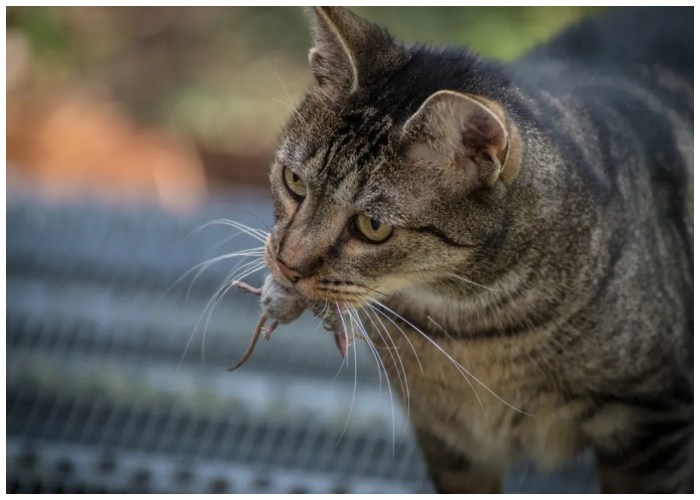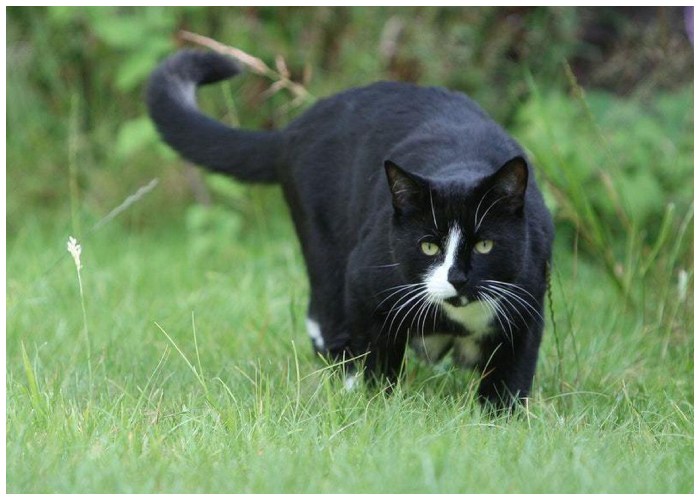For cat owners whose feline friends enjoy the great outdoors, the sight of small, lifeless creatures on their doorstep is a common, albeit sometimes unsettling, occurrence. This hunting behavior, varying in frequency among cats, raises questions about its underlying reasons. Despite being well-fed and doted upon, many cats continue to exhibit these primal instincts. To understand this aspect of feline behavior, it’s essential to delve into the history and nature of cat hunting.
The Root of the Hunting Instinct
Cats’ ancestors were solitary hunters, relying on their skills to survive. This evolutionary background has equipped modern domestic cats with an inherent hunting drive. Even when not required for survival, the sight or sound of potential prey activates their deeply ingrained instincts, compelling them to engage in the hunt. This behavior is not only a testament to their predatory nature but also serves as a form of entertainment and mental stimulation.
Learning to Hunt
The art of hunting is a learned behavior, primarily taught by the mother cat. Kittens observe and mimic their mother, honing their skills through play and practice. This learning process is crucial for their development, equipping them with the necessary tools to navigate the world as adept hunters. Indoor cats, though not needing to hunt for food, may display these behaviors through play, substituting toys for prey.

Understanding Hunting Strategies
Cats employ various strategies when hunting, such as ambush, stalk and pounce, and fishing. These methods showcase their adaptability and intelligence, allowing them to successfully capture their prey. An interesting aspect of their behavior post-capture is the tendency to toy with their prey. This behavior is believed to disorient and exhaust the prey, reducing the cat’s risk of injury during the final kill.
The Drive Behind Hunting
It’s a common misconception that cats hunt out of hunger. However, their instinct to hunt is independent of their dietary needs. Cats are opportunistic hunters, evolved to seize any chance to hunt, regardless of their hunger levels. This explains why even well-fed domestic cats may still engage in hunting activities.
Gifts or Spoils?
The act of bringing home their catches has puzzled many cat owners. While it’s tempting to view these as gifts, another perspective suggests that cats might be bringing their spoils home to consume later, indicating they feel secure enough in their environment to leave potential meals in their owner’s care.

Mitigating Hunting Behavior
While it’s vital to respect a cat’s natural instincts, there are ways to manage their hunting behavior. Engaging in regular play sessions can help satisfy their hunting urges, using toys that mimic prey movements. Additionally, fitting a collar with a bell can alert potential prey, reducing the chances of a successful hunt. Ensuring your cat is well-fed and limiting their access to the outdoors during peak hunting times can also mitigate this behavior.
Understanding and addressing a cat’s natural hunting behavior is a multifaceted approach that involves recognizing the instinctual basis of these actions while providing alternative activities that satisfy their predatory instincts in a safe and controlled environment. It’s about creating a balance that allows cats to express their natural behaviors healthily and safely. This balance ensures that cats can enjoy a stimulating and fulfilling life, nurtured by their owners’ understanding and care. By acknowledging and adapting to their cat’s natural instincts, cat owners can foster a deeper bond with their pets, appreciating the complex and fascinating creatures they share their lives with. This comprehensive approach not only caters to the cat’s physical needs but also to their mental well-being, enriching the lives of both the cat and the owner.